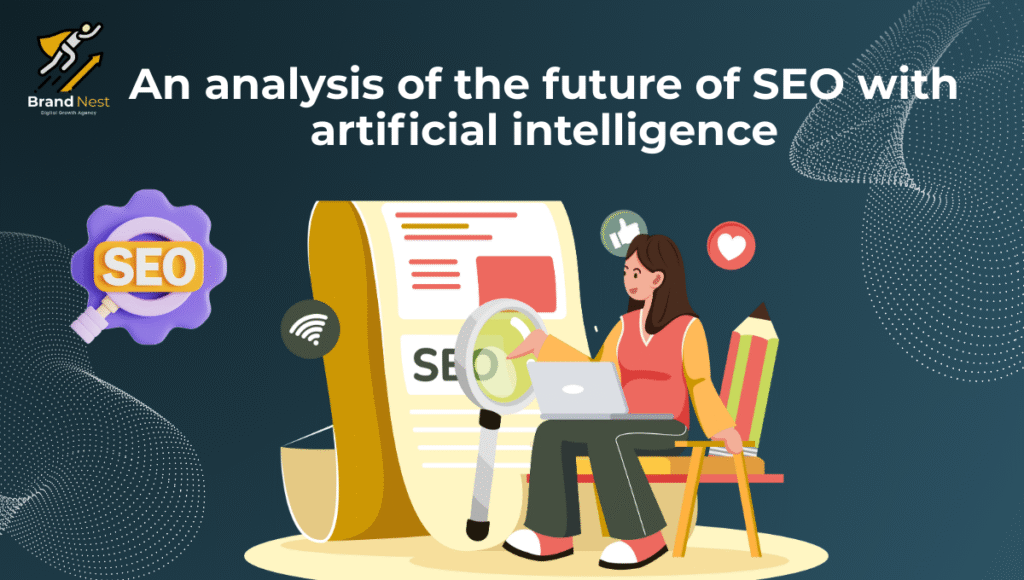
Search Engine Optimization (SEO) has long been a cornerstone of digital marketing, helping businesses enhance their visibility and reach target audiences through search engines. As technology advances, artificial intelligence (AI) is reshaping the way SEO is planned, executed, and measured. From predictive analytics to natural language processing, AI-driven tools are redefining the strategies marketers use to rank higher in search results. An analysis of the future of SEO with artificial intelligence reveals both exciting opportunities and new challenges for businesses seeking to maintain a competitive edge.
The Role of AI in Transforming Search Engines
Search engines themselves are increasingly powered by AI. Google’s algorithms, for example, incorporate machine learning models such as RankBrain and BERT to better understand user intent and context. Rather than relying solely on keyword density, these algorithms analyze patterns in user behavior, semantic meaning, and relevance.
This shift means that traditional SEO practices focused only on keyword placement are no longer sufficient. Instead, the emphasis is on creating content that aligns with how AI interprets meaning, intent, and value. Marketers must now consider how search algorithms “think,” adapting strategies to deliver more natural, conversational, and user-focused content.
Personalization and User Experience
AI is ushering in a future where personalization plays a central role in SEO. Machine learning models analyze data such as browsing history, location, and device type to deliver highly tailored search results. This means that two users searching for the same keyword may see different outcomes based on their preferences and behaviors.
For businesses, this personalization opens opportunities to connect with audiences in more meaningful ways. Websites optimized for user experience—fast-loading pages, mobile responsiveness, and intuitive navigation—will benefit most. AI’s role in understanding user intent also highlights the importance of creating content that addresses specific needs, questions, and problems rather than simply promoting products or services.
Content Creation and Optimization with AI
Another major transformation lies in how content is created and optimized. AI-powered tools can analyze massive datasets to identify trending topics, relevant keywords, and gaps in the market. This data-driven approach enables businesses to craft content strategies that are more precise and effective.
Moreover, AI writing assistants and natural language generation tools can help produce high-quality drafts at scale. While human creativity and critical thinking remain essential, AI can streamline tasks such as generating meta descriptions, headlines, or product descriptions. This synergy allows marketers to focus more on strategy, storytelling, and building authentic connections with audiences.
The Rise of Voice Search and Conversational Queries
The growing adoption of smart assistants like Alexa, Siri, and Google Assistant is changing how users interact with search engines. Voice search relies heavily on natural language processing, often producing queries that are longer and more conversational than traditional text searches. For example, a user may type “best digital marketing tools” but ask their voice assistant, “What are the best digital marketing tools for small businesses in 2025?”
AI is central to interpreting these conversational queries, and businesses must adapt SEO strategies accordingly. This involves optimizing for long-tail keywords, answering questions directly, and structuring content in a way that aligns with spoken language. The future of SEO will require businesses to think less about keywords alone and more about the context and phrasing of everyday speech.
Predictive Analytics and Data-Driven SEO
One of AI’s greatest contributions to SEO is predictive analytics. By analyzing past performance and current trends, AI can forecast which strategies are likely to be most effective in the future. Marketers can use predictive models to identify which keywords will gain traction, which types of content are likely to resonate, and how algorithm updates may impact rankings.
This proactive approach reduces reliance on trial-and-error methods, enabling businesses to make informed decisions quickly. It also supports long-term planning, as organizations can anticipate changes in user behavior and search engine algorithms before they happen.
Ethical Considerations and Challenges
While AI offers immense potential for SEO, it also raises ethical concerns and challenges. The reliance on AI tools for content generation, for example, risks producing material that lacks originality or human nuance. Over-automation could lead to a decline in authentic storytelling and brand voice.
Additionally, the personalization of search results—though beneficial for user experience—creates a “filter bubble” effect, where individuals are exposed only to information aligned with their existing views. Businesses must remain mindful of these dynamics and ensure that their SEO strategies prioritize transparency, credibility, and value for the user.
Preparing for the Future
To thrive in the future of SEO with AI, businesses and marketers must adopt a forward-thinking approach. This includes:
Investing in AI-powered SEO tools for keyword research, content optimization, and performance tracking.
Prioritizing high-quality, user-centric content that aligns with AI’s ability to understand intent and context.
Adapting to voice search trends by focusing on conversational queries and long-tail keywords.
Continuously monitoring algorithm updates to stay aligned with how search engines evolve.
Balancing automation with human creativity to ensure authenticity and brand identity remain strong.
Conclusion
The integration of artificial intelligence into SEO is not a distant possibility; it is already reshaping the digital landscape. AI-driven search engines, personalized experiences, voice search, predictive analytics, and content automation are revolutionizing how businesses connect with audiences online.
The future of SEO with AI will reward those who embrace innovation while maintaining a focus on delivering real value. Success will come from blending the analytical power of AI with the creativity, empathy, and strategic vision of human marketers. By preparing today, businesses can ensure they remain visible, relevant, and competitive in the search-driven world of tomorrow.


